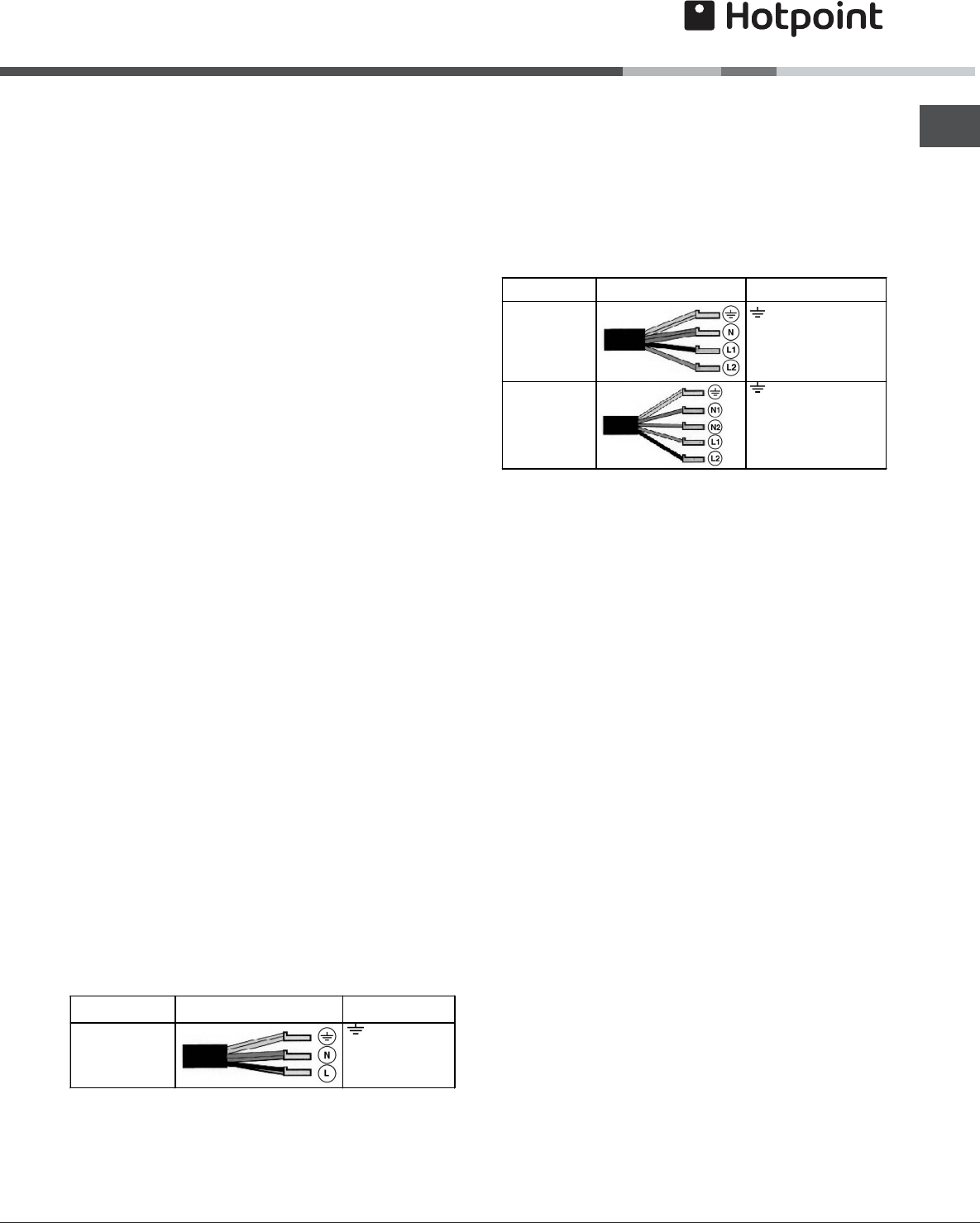
3
GB
Fixing
The appliance must be installed on a perfectly level
supporting surface.
Any deformities caused by improper fixing could affect
the features and operation of the hob.
The thickness of the supporting surface
should be
taken into account when choosing
the length of the
screws for the fixing hooks:
30 mm thick: 23 mm screws
40 mm thick: 13 mm screws
Fix the hob as follows:
1. Use short flat-bottomed screws to fix the 4
alignment springs in the holes provided at the central
point of each side of the hob.
2. Place
the hob in the cavity, make sure it is in a
central position and push down on the whole perimeter
until the hob is stuck to the supporting surface.
3. For hobs with raised sides: After inserting the hob
into its cavity, insert the 4 fixing hooks (each has its
own pin) into the
lower edges of the hob, using the
long pointed screws to fix them in place, until the
glass is stuck to the supporting surface.
The screws for the alignment springs must remain
accessible.
In order to adhere to safety standards, the appliance
must not come into contact with electrical parts once it
has been installed.
All parts which ensure the safe operation of the
appliance must not be removable without the aid of a
tool.
Electrical connection
The electrical connection for the hob and for any built-
in oven must be carried out separately, both for safety
purposes and to make extracting the oven easier.
Single-phase connection
The hob is equipped with a pre-connected electricity
supply cable, which is designed for single-phase
connection. Connect the wires in accordance with the
instructions given in the following table and diagrams:
Voltage and
mains frequency
Electrical cable Wire connection
220-240V 1+N ~
50 Hz
: yellow/green;
N: the two blue wires
together
L: brown and black
together
Other types of connection
If the mains supply corresponds with one of the
following:
Voltage and mains frequency
400V - 2+N ~ 50 Hz
220-240V 3 ~ 50 Hz
400V 3 - N ~ 50 Hz
400V - 2+2N ~ 50 Hz
Separate the wires and connect them in accordance
with the instructions given in the following table and
diagrams:
Voltage and
mains frequency
Electrical cable Wire connection
400V - 2+N ~
50 Hz
220-240V 3 ~
50Hz
400V 3-N~ 50Hz
: yellow/green;
N: the two blue wires together
L1: black
L2: brown
400V - 2+2N ~
50 Hz
: yellow/green;
N1: blue
N2: blue
L1: black
L2: brown
Connecting the electricity supply cable to the mains
If the appliance is being connected directly to the
electricity mains an omnipolar switch must be installed
with a minimum opening of 3 mm between contacts.
The installer must ensure that the correct electrical
connection has been made and that it is fully
compliant with safety regulations.
Before connecting the appliance to the power supply,
make sure that:
The appliance is earthed and the plug is compliant
with the law.
The socket can withstand the maximum power of the
appliance, which is indicated on the data plate
located on the appliance itself.
The voltage falls within the range of values indicated
on the data plate.
The socket is compatible with the plug of the
appliance. If the socket is incompatible with the
plug, ask an authorised technician to replace it. Do
not use extension cords or multiple sockets.
Once the appliance has been installed, the power
supply cable and the electrical socket must be easily
accessible.
The cable must not be bent or compressed.
The cable must be checked regularly and replaced
by authorised technicians only.
The manufacturer declines any liability should
these safety measures not be observed.
Do not remove or replace the power supply cable for
any reason. Its removal or replacement will void the
warranty and the CE marking. INDESIT does not
assume liability for accidents or damage arising from
replacement/removal of the original power supply
cable. Replacement can only be accepted when
carried out by personnel authorised by INDESIT and
using an original spare part.


















